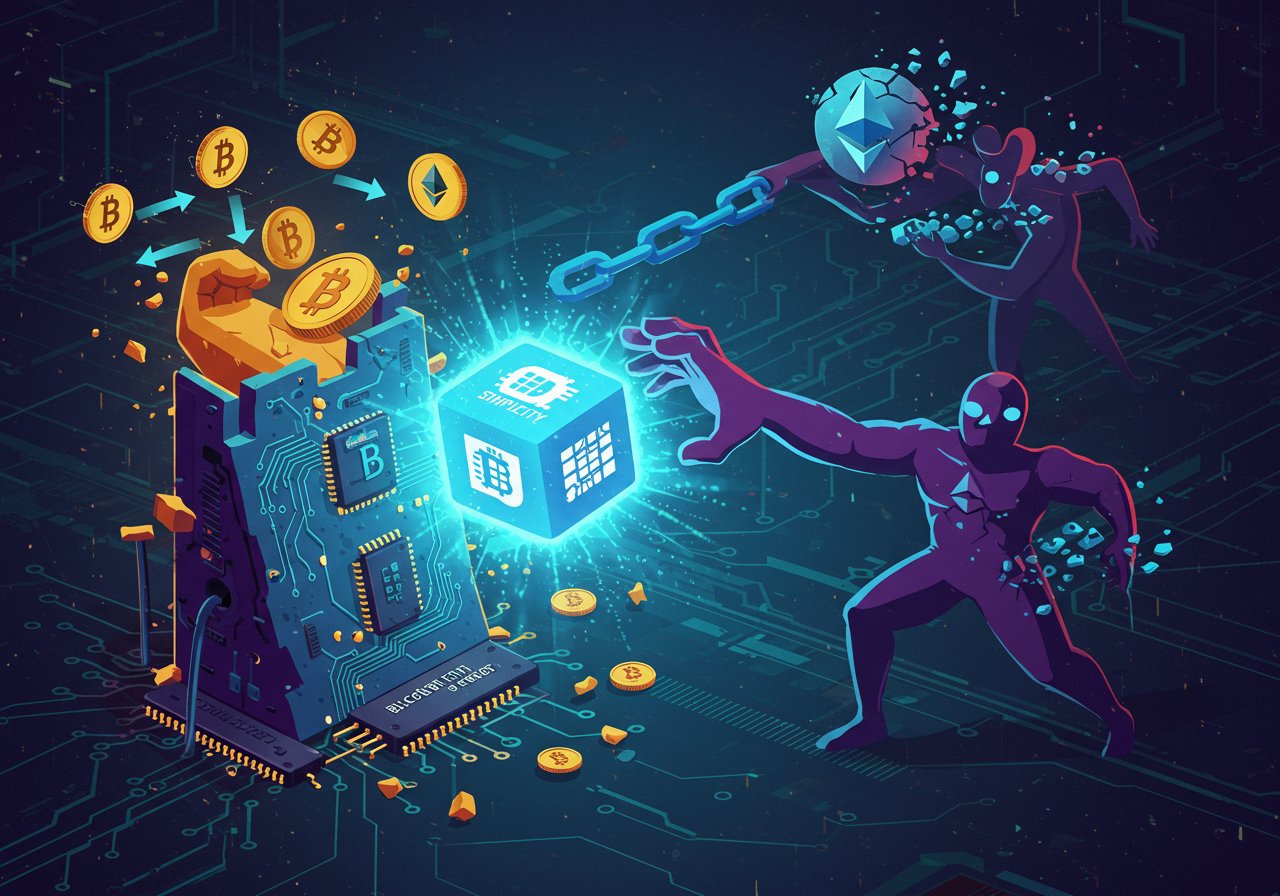
Bitcoin‘s Smart Contract Renaissance: Enter Simplicity
The landscape of Bitcoin development is poised for a significant evolution. Blockstream, a key player in the Bitcoin ecosystem, has launched Simplicity, a novel smart contract language specifically designed for the Bitcoin blockchain and its layer-2 solutions like Liquid. This move signals a determined push to transform Bitcoin from a store of value into a more programmable and versatile foundation for decentralized finance (DeFi).
A Paradigm Shift: Simplicity vs. Solidity
Simplicity‘s arrival contrasts sharply with Ethereum’s established smart contract language, Solidity. The core distinction lies in their underlying architectures. Ethereum relies on a global state, a network-wide consensus on account balances and data. Bitcoin, however, leverages the Unspent Transaction Output (UTXO) model. This fundamental difference dictates how smart contracts are designed and executed. In Simplicity, every piece of state required by a contract must be included within the transaction itself. This approach, as Blockstream emphasizes, promotes safer and more contained contracts by design. Unlike Solidity, Simplicity contracts cannot share state or reference global variables directly; all information must be explicitly passed within each transaction. This reduces the attack surface and the potential for cascading failures.
SimplicityHL and Enhanced Developer Experience
To further ease development, Blockstream has introduced SimplicityHL, a higher-level implementation of the language. This version offers increased abstraction, making it easier for developers to build complex smart contracts. Furthermore, a web-based integrated development environment (IDE) is available, which streamlines the coding and testing process.
The Domain-Specific Smart Contract Trend
Simplicity joins a growing trend of domain-specific smart contract languages. These languages are tailored to specific needs and architectures, unlike the generalized approach of Solidity. Examples include Noir, a language for writing and verifying zero-knowledge proofs, and Leo, which also targets zero-knowledge proof systems. This shift reflects an understanding that different blockchains and applications require tailored approaches to achieve optimal performance, security, and functionality.
Implications for Bitcoin and DeFi
The integration of Simplicity, particularly within Liquid, could have profound implications for Bitcoin‘s DeFi capabilities. It paves the way for more complex and sophisticated financial applications, potentially including decentralized exchanges, lending platforms, and other innovative protocols, all secured by Bitcoin‘s robust security model. However, the shift to a new language also presents challenges. Developers will need to learn Simplicity and adapt to a different mindset. The success of Simplicity will depend not just on its technical merits but also on the adoption and engagement of the Bitcoin developer community.
Looking Ahead
Blockstream‘s move is a bold statement of intent. Simplicity represents a crucial step towards realizing the full potential of Bitcoin as a programmable blockchain. As the language matures and is adopted, it could redefine the capabilities of Bitcoin-based DeFi and shape the future of the broader cryptocurrency ecosystem.


